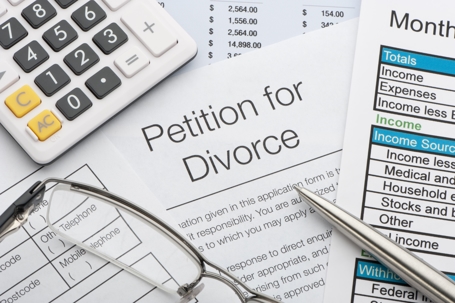If you have been a victim of domestic violence or the aggressor, you may be concerned as to how this aggressive past may affect your divorce. Whether a report has been filed or legal proceedings regarding the allegations have taken place, domestic violence can affect many parts of your divorce including: child custody, visitation, and even alimony. Therefore, if you or your spouse have a history of domestic violence, bring this to the attention of your Florida Divorce Attorney, and they will be able to assess your specific situation and the effect it may have on your proceedings.
If you have been a victim of domestic violence, you may need to present to the court evidence of these occurrences. The most common evidence presented to a court of domestic violence is a documentation of a police report. However, some individuals may feel ashamed and never report these instances to the police. Therefore, you may need to provide personal testimony, pictures, or witness testimony, as well as doctor visits that display the abuse that occurred. Other evidence that may be presented to the court is the entry of a restraining order against a partner. If a restraining order is entered, the court will be able to look at this judicial order and factual findings of the judge that determined the safety precautions that needed to be established based upon the incidents detailed in the petition. However, if you have taken no legal action or sought medical attention for your injuries due to the domestic violence you may have to take the stand and testify to the incidents. Allegations, this severe require evidence to supplement them prior to the court allocating weight to such charges. If you have been a victim of domestic violence discuss the evidence of these traumatic events with your Florida Divorce Attorney and what evidence may need to be presented to the court.
One of the most common ways, a domestic violence incident comes before the court is in a child custody determination. In Florida, there is a presumption of shared custody unless it would be detrimental to the child. Specifically, statute states that if a parent has been convicted of a misdemeanor domestic violence charge or worse, detriment to the child is presumed. The main concern of the court is the protection of the children. The court will want to know if the children were present during these instances, if they saw the violence, if they were told of these occurrences, or if they themselves have been abused in some way. The court wants to know if the victimized parent removed the children from the situation, sought help, and ensured the safety of the children was a priority. These occurrences will have a great deal of influence on a child custody award. The court seeks, first and foremost, to find the best interest of the child. This includes investigating the history of abuse and safety of the environment the child will be living in with each parent. Therefore, if there is evidence that a parent has violent tendencies or is unable to provide a safe, healthy and caring environment for the child the court will need to implement safeguards for the child. These safeguards could result in a sole custody award and therefore domestic violence can be an extremely influential aspect of a divorce.
Further, the court may take into account the occurrence of domestic violence in regards to an alimony award. For instance, after abuse many find that they need physical medical follow ups as well as mental health sessions to cope with such traumatic events. These necessary medical appointments can cost a great deal of money, and if a party is already the lower earning spouse qualifying for alimony, the court may factor in the domestic violence occurrence in their determination of an alimony award to determine justice between the parties.
It is important to obtain the advice and counsel of a Florida Divorce Attorney who is well versed in these matters. We will seek to protect you during your divorce proceedings and discuss with you the effect domestic violence may have on your case.
Speaking to an attorney at our Florida office is free of charge, and we accept calls 24 hours a day, 7 days a week. Contact us at 850-307-5221 or complete an online contact form to get in touch with a member of our team today.

